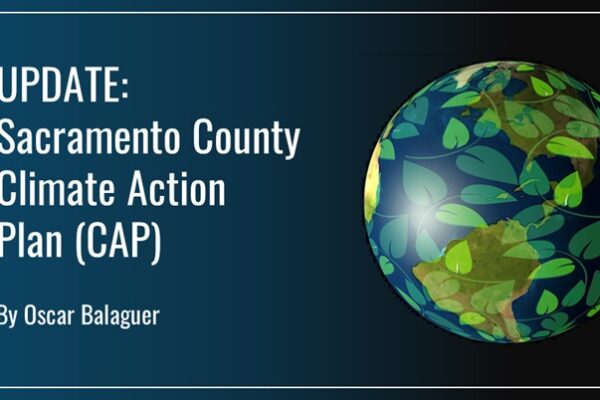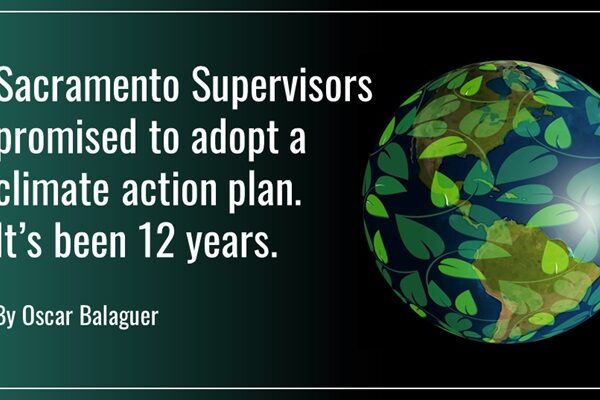
PART 2: Coping with Climate Anxiety through Action
In Part 1 of this series, we discussed how more than two-thirds of people in the United States are anxious about climate change. We also examined how climate anxiety disproportionately affects young people, people of color, and other historically marginalized communities. Here, we’ll look at different ways people cope with their anxiety.
Coping with Climate Anxiety
“It’s hard not to be anxious when this crisis is happening right in front of us, and it seems like very little is being done to stop it,” says 23-year-old Jess M., a recent college graduate who lives in California.
Everybody reacts differently to climate change. In fact, some people find that their own feelings can change drastically from day to day, or even by the hour. And it’s not unusual to hold multiple, seemingly contradictory thought processes at the same time (such as fear and empowerment). Also, not everybody feels climate anxiety, and that is okay, too!
Three Common Coping Methods
#1 CLIMATE ACTION
Many people find that participating in climate action helps them cope with their feelings of anxiety and helplessness. This can involve a single or ongoing action of any size that is intended to make a positive difference in climate change or its impacts. Climate action can help us feel more empowered, strengthen our sense of community, and shift the focus onto what we can control, instead of what we cannot.
It’s important to note that climate action does not always eliminate or even reduce climate anxiety. For some people, climate action is not meant to resolve anxiety, but rather it helps redirect that energy in a more positive direction.
Unfortunately, not all coping mechanisms take the form of positive action. The next two reactions, overoptimism and ecoparalysis, are common responses to climate anxiety that can sometimes have harmful impacts on mental health.
#2 (OVER)OPTIMISM
Some people respond to climate anxiety by painting an overly rosy picture of the future. Although this degree of optimism may be without merit, it is often part of a well-meaning effort to help others feel better about climate change.
To be clear, hope and optimism do play a valuable role in managing climate anxiety. However, unrealistic confidence can rise to the level of “toxic positivity,” where instead of reducing anxiety, it makes it worse. Overcompensating with excessive positivity can (a) invalidate another person’s experience, (b) reinforce concerns that climate change is being minimized or ignored, and (c) erode trust in the optimist’s ability to be a safe source for information or support.
#3 ECOPARALYSIS
“Too much emphasis on ‘doom and gloom’ can backfire and perpetuate anxiety and paralysis,” explains Licensed Mental Health Counselor, Jennifer Mooney.
Sometimes, climate anxiety can be so overwhelming that it actually inhibits action. Feelings of dread, helplessness, uncertainty, and hopelessness can lead to a type of inaction known as ecoparalysis.
This coping mechanism is frequently mistaken for apathy, detachment, or disengagement. But in fact, it’s quite the opposite! Ecoparalysis is a defensive response to emotional overload, and it’s often a sign that the person cares so much that they have had to shut down for self-preservation.
Both ecoparalysis and overoptimism provide a layer of emotional protection against the overwhelming nature of climate change. They can stem from a genuine desire to feel better about the future, or to help others feel better. While this is a form of denial, it should not be confused with classic “climate denialism.”
Rather than being a response to climate anxiety, classic climate denialism – denying the reality of anthropogenic (human-caused) climate change – is usually a product of scientific misunderstanding. It can be a result of misinformation and/or misguided feelings of loyalty to others who refuse to acknowledge the climate crisis.
Of the three coping methods discussed here (action, overoptimism, and ecoparalysis), climate action is the only one that is known to have a positive impact on both climate anxiety and climate justice.
Climate Action Stories from Gen Z
FROM UNCERTAINTY TO PURPOSE
Ruipeng Yukiyama (22) describes how he transformed his feelings of uncertainty into a strong sense of purpose by expanding his knowledge about climate policy. He now owns and operates Climate Ingenuity, an online platform where he plans to make all the helpful climate-policy resources he has compiled over the years accessible to everyone.
“At times I felt so overwhelmed as if I somehow needed to carry the weight of the whole world on my shoulders alone,” Ruipeng writes in the Climate Ingenuity newsletter. He now considers his level of climate anxiety “very low,” and he believes his focus on climate action has had a significant positive impact on how he feels about the future.
CHANNELING CLIMATE ANXIETY INTO ACTION
New York resident and climate activist Madeline Dyke (23) still experiences climate anxiety to this day. But she has also found power in climate action, unlocking the secret to influencing state and federal policymakers (hint: talking to them works!). This is why she created Climate Changemakers, an online platform where people can connect and get more involved in climate policy actions in their own communities and states.
“If you want to use your anger and anxiety to get ambitious climate policy passed, march in the street and then call your representatives’ office,” Madeline advises.
Up Next: Part 3 includes resources to help turn climate anxiety into action.
Download the Full 3-Part Series:
From Climate Anxiety to Climate Action
or jump to:
- Part 1: Understanding Climate Anxiety
- Part 2: Coping with Climate Anxiety through Action
- Part 3: Taking Collective Climate Action
###
Author: Patricia M. Moore, M.A.
Patricia Moore is a content and communication strategist with a passion for sustainability and social justice. When not researching and writing, you’ll find her spending time with family, walking her golden retrievers, or singing at the piano. LinkedIn.com/in/PatriciaMMoore


